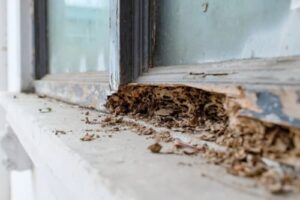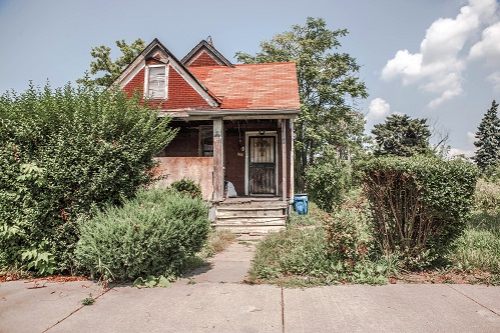Does homeowners insurance cover termite damage?
“Termites and pests are not typically covered because they (insurance carriers) consider it preventable with proper maintenance and care,” says David Lervig, founder and main instructor at the Insurance School of Texas.
Homeowners insurance doesn't cover maintenance, wear and tear or damage that could have been prevented. It only covers sudden and accidental damage to your home from things like storms, fire, theft and vandalism.
Termite and other pest infestations cause damage that the insurance carrier believes could have been prevented and, therefore don’t meet the criteria of sudden or accidental. Therefore, this type of damage is one of the most common home insurance exclusions.
When does homeowners insurance cover termite damage?
One situation when termite damage might be covered by your home insurance is if a storm was directly to blame. This gets a little tricky, but if a storm damaged your siding and pests took up residence as a result, your homeowners policy might cover it.
If too much time goes by, however, the insurance company may chalk it up to neglect and deny your claim.
As a rule of thumb, termite damage is usually not covered. There is no termite insurance to speak of, so prevention and pest control are likely your best options.
How to get insurance to cover termite damage
There is really no way to get termite damage covered by your homeowners insurance. Your best bet is to work regularly with a reputable pest control company that guarantees their work.
There are different warranties you can get for termite treatment at your home. Most do not pay for actual repairs from the termite damage– they often only pay for retreatment. Ask your pest control company about “retreat/repair warranties” that cover repairs.
How to prevent termites
According to Michael Potter, Professor Emeritus of Entomology at the University of Kentucky, follow these tips to prevent termites around your home:
- Eliminate wood in contact with the ground (siding, wood steps, latticework, etc).
- Do not let moisture accumulate near the foundation.
- Reduce moisture and humidity in crawl spaces.
- Never store firewood or wood debris against foundations or inside crawl spaces.
- Use mulch sparingly, especially if you already have termites or other conducive conditions.
- Consider having the home treated by a professional pest control firm.
He encourages homeowners to learn to identify the telltale signs of termites so they can get treatment immediately.
FAQ: Termites and home insurance
Does homeowners insurance cover termite treatment?
No, homeowners insurance doesn’t cover termite treatment.
Is carpenter ant damage covered by homeowners insurance?
No. Carpenter ants and other pests like mice are excluded from homeowners insurance coverage.





